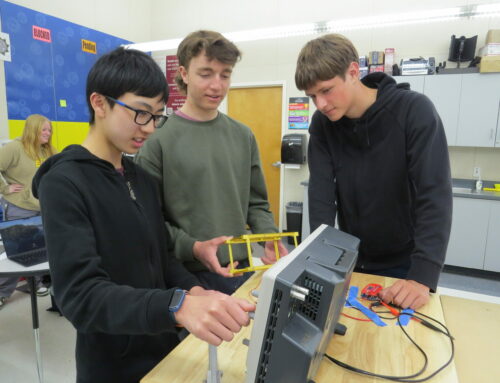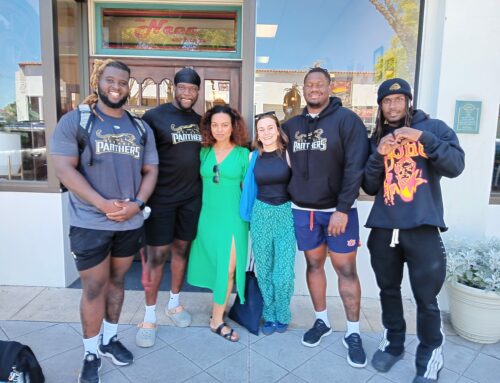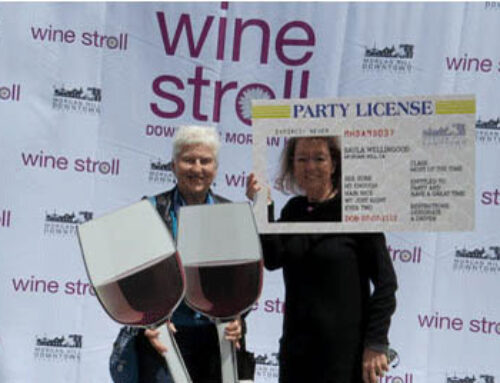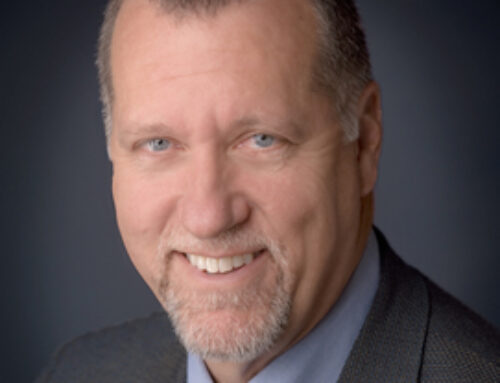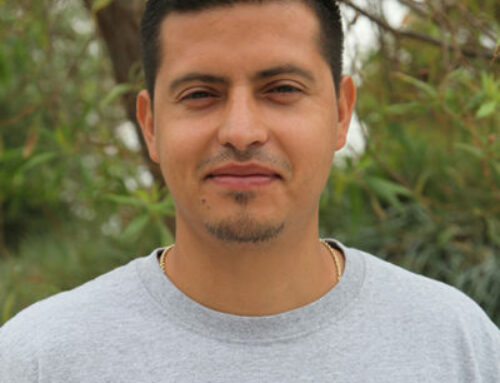Ramadan means bonding with family, community, and neighbors
![]()
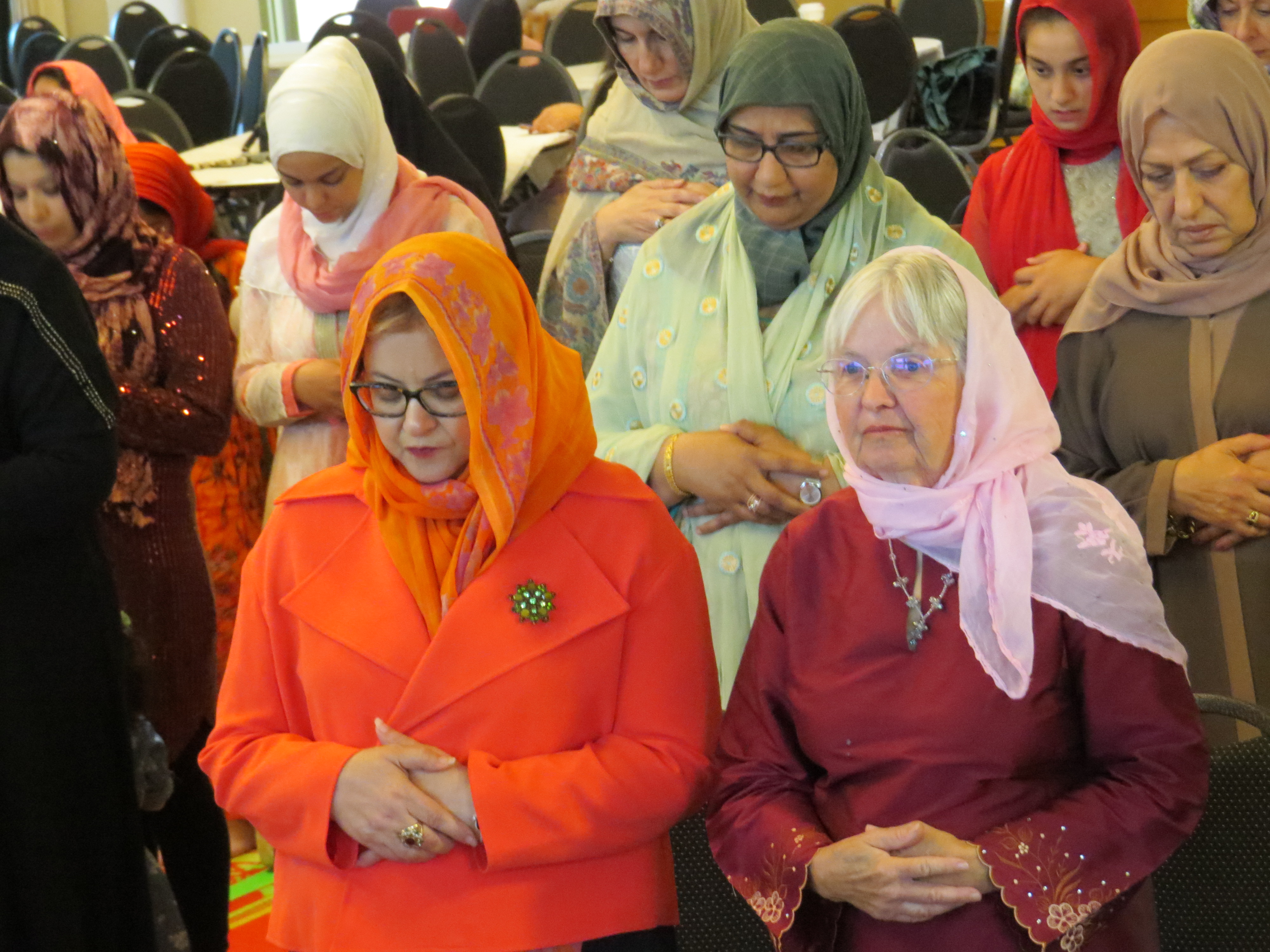
South Valley Islamic Community worshippers during the last day of the Ramadan 2018 holiday at Morgan Hill’s Community Center. Photo by Marty Cheek
By Sarah and Ameera Hamed
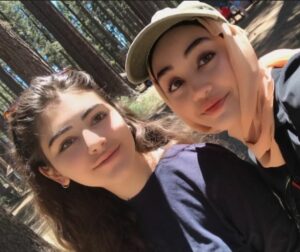
Sarah and Ameera Hamed
Editor’s note: In the Islamic calendar, the month of Ramadan this year starts at sunset March 10 and ends with the Eid al-Fitr (“festival of breaking the fast”) at sunset April 9. More than two billion Muslims around the world as well as those in South Valley observe a sacred ritual of fasting and spiritual reflection that lies at the core of their faith.
From dawn to dusk each day for 30 days, observant Muslims refrain from eating, drinking, or smoking. Before sunrise and after sunset, families gather for suhoor and iftar meals bookending long days of worship, charity and community. As an act of devotion, the fast celebrates two key events — Allah revealing the first verses of the Quran to the Prophet Muhammad, and the giving of the religion’s guiding scripture to humanity.
We asked sisters and Morgan Hill residents Ameera Rose Hamed, 19, and Sarah Yasmeen Hamed,17, to share why Ramadan is important to them as part of their Islamic faith.
Ameera: Ramadan is a very special month for Muslims. It is the time in which our holy book, the Quran, was revealed and we refrain from eating and drinking from dawn until sunset. However, this month is about so much more. It offers a spiritual reset button, reminding us of what truly matters in life. During this time, I find myself reflecting on my actions, my intentions, and my impact in this world.
 I see fasting as an opportunity to redirect my focus from life’s distractions to what nourishes my soul. Fasting allows an individual to practice self-discipline and prevent one’s desires from controlling them. Yet, Ramadan also allows us to connect with God and one another. We are given the joy of breaking our fast with family, friends, and neighbors. Our Muslim community fasts, prays, and recites the Quran with us all around the world. It’s a reminder that no matter our differences, we are equal and through acts of charity and kindness, we come together, manifesting the spirit of compassion and empathy that embodies Ramadan.
I see fasting as an opportunity to redirect my focus from life’s distractions to what nourishes my soul. Fasting allows an individual to practice self-discipline and prevent one’s desires from controlling them. Yet, Ramadan also allows us to connect with God and one another. We are given the joy of breaking our fast with family, friends, and neighbors. Our Muslim community fasts, prays, and recites the Quran with us all around the world. It’s a reminder that no matter our differences, we are equal and through acts of charity and kindness, we come together, manifesting the spirit of compassion and empathy that embodies Ramadan.
This month is a time of gratitude and patience. As I feel hunger and thirst, I am reminded of the countless blessings in my life and the countless others who are not as fortunate. From the food on my table to the love of my family, I’m surrounded by bounty. Ramadan serves as a humbling experience that fills me with gratitude and appreciation for all I have. As this beautiful month approaches, I am filled with anticipation, and excitement knowing Ramadan has the power to transform not just me, but the world around me.
To me, Ramadan means bonding with my family, my community, and my neighbors. It means going to the mosque (a building in San Martin rented by the South Valley Islamic Community) every day and seeing my community, happy, healthy, and lively. It means sitting around the kitchen table before dawn and eating together, while my dad, in a singsong voice, tells us how many minutes we have left to eat, and my mom telling me to “drink more water!” Ramadan means breaking my fast with warm milk made sweet with chopped dates. It means fasting with my friends and laughing about how good the candy we eye all day is going to taste. Ramadan helps me to feel more in control of my habits and emotions. I feel closer to God because I am trying to be the best person I can be.
Sarah: Ramadan was very difficult for me. It still is. And I’m sure it is for many people. No matter what I would eat beforehand or how much, nothing seemed to work. So, of course, I would break my fast.
At the time, I was very embarrassed that I couldn’t “last” as long as my family members or friends. But I realized Ramadan is not about starving yourself. It’s not about losing weight. It’s about putting yourself in another’s shoes for a day, one who doesn’t have a warm home or the meals we have. It’s meant to establish a sense of gratefulness for all God has given us and to serve as a reminder of how that can be taken away. And it is a means to exercise self-control.
It should be mentioned that there are exceptions made for those who cannot fast, including the sick and elderly. If one cannot fast during, it is expected of them to engage in acts of service and charity. Some may see fasting all day as a bit much, but Ramadan serves as an important reminder of how we should act throughout the year by strengthening our self-control and being charitable and grateful.
Sisters and Morgan Hill residents Ameera Rose Hamed, 19, a college sophomore, and Sarah Yasmeen Hamed,17, a high school senior, wrote this column for Morgan Hill Life.


